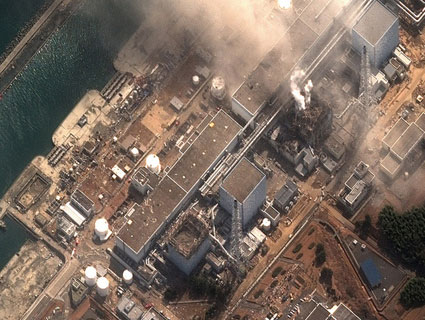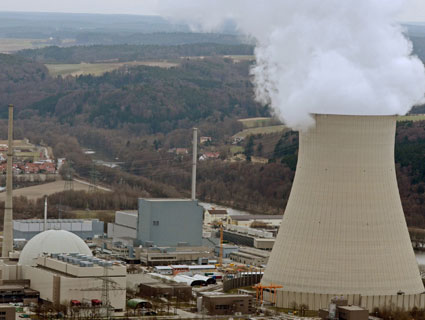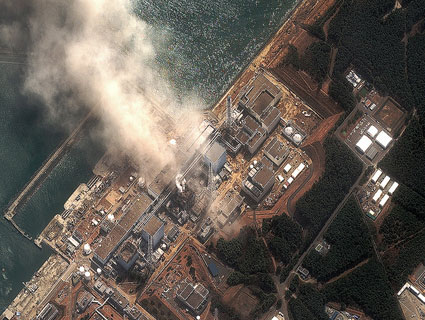My colleague Kate Sheppard has a piece up today on the Nuclear Regulatory Commission, the federal agency tasked with overseeing America’s nuclear power plants and processing facilities. Today, the Union of Concerned Scientists issued a new report analyzing the NRC’s response to 14 “near-misses” over the last year. Conclusion: We’re not doing so well. Among the “near-misses“:
Peach Bottom. Workers slowed down control rod testing to evade regulations that would have required a plant shutdown; NRC inspectors were aware of the problem but failed to address it adequately.
Indian Point. Inspectors documented that the liner of the refueling cavity had been leaking since 1993; NRC management chose to ignore the problem.
Vermont Yankee. The NRC ignored regulations requiring that all releases of radioactively contaminated air be via controlled and monitored pathways—regulations that had been grounds for shutting down a Baton Rouge plant two years previously.
There’s more: At Calvert Cliffs in Maryland, “A roof known for years to leak when it rained allowed rainwater to short out electrical equipment.” At Diablo Canyon in California, “The reactor operated for nearly 18 months with vital emergency systems disabled.” At Braidwood, in Illinois, “the problems included a poor design that led to repeated floods in buildings with safety equipment, a poor design that allowed vented steam to rip metal siding off containment walls, and undersized electrical fuses for vital safety equipment.”
It’s not all bad news—the report (which was scheduled for release even before last week’s earthquake in Japan) highlights a few “outstanding” cases in which NRC regulators discovered problems and followed up to ensure they were resolved effectively. And because the most serious threats were fairly basic in nature, it suggests that safety can be significantly improved without dramatically overhauling the system.
But more generally, the authors argue that the NRC currently focuses on the immediate problem (a busted valve, for instance, or a leaking roof) without following up on the larger question of how those problems came to be, and why they weren’t addressed sooner. The report also raises concerns about a specific company, Progress Energy, which was involved in 5 of the 14 “near miss” incidents; UCS suggests investigating the corporate policies of any company that racks up more than one “near miss,” to clarify whether the demand for profits are interfering with public safety.
The big takeaway: “The more owners sweep safety problems under the rug and the longer safety problems remain uncorrected, the higher the risk climbs.”














